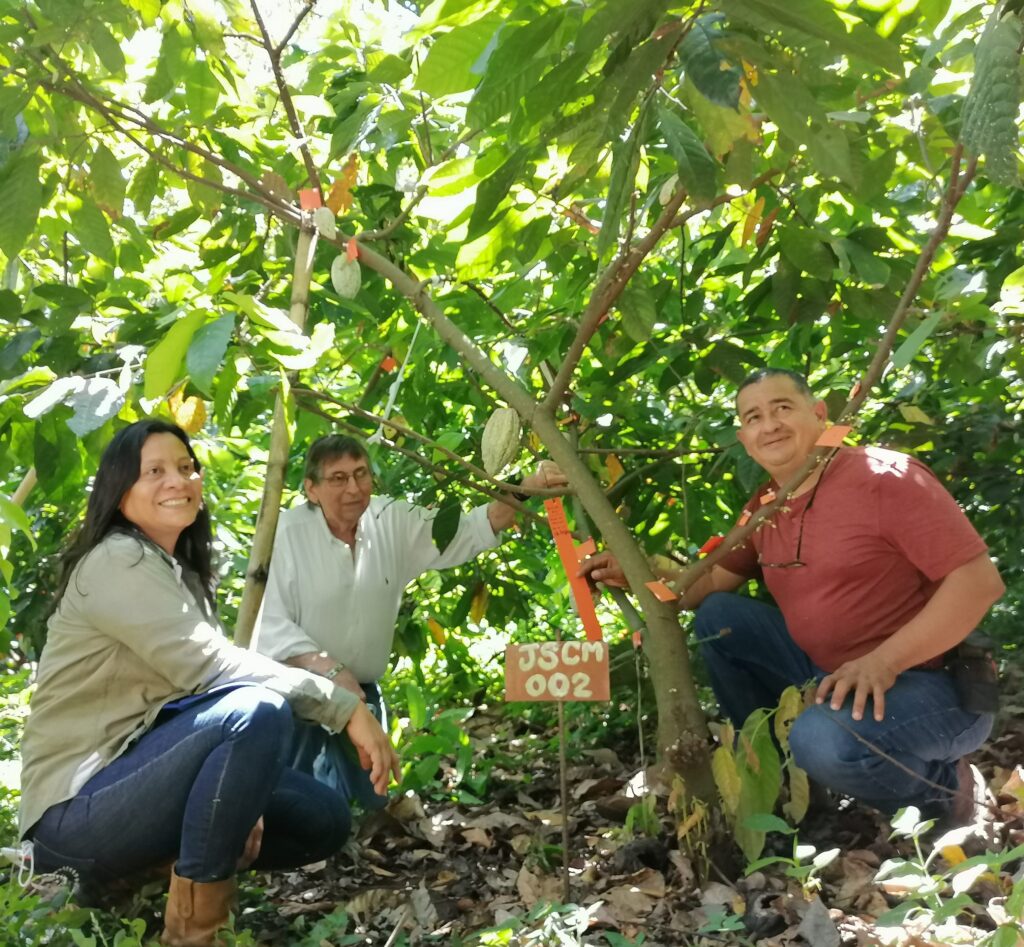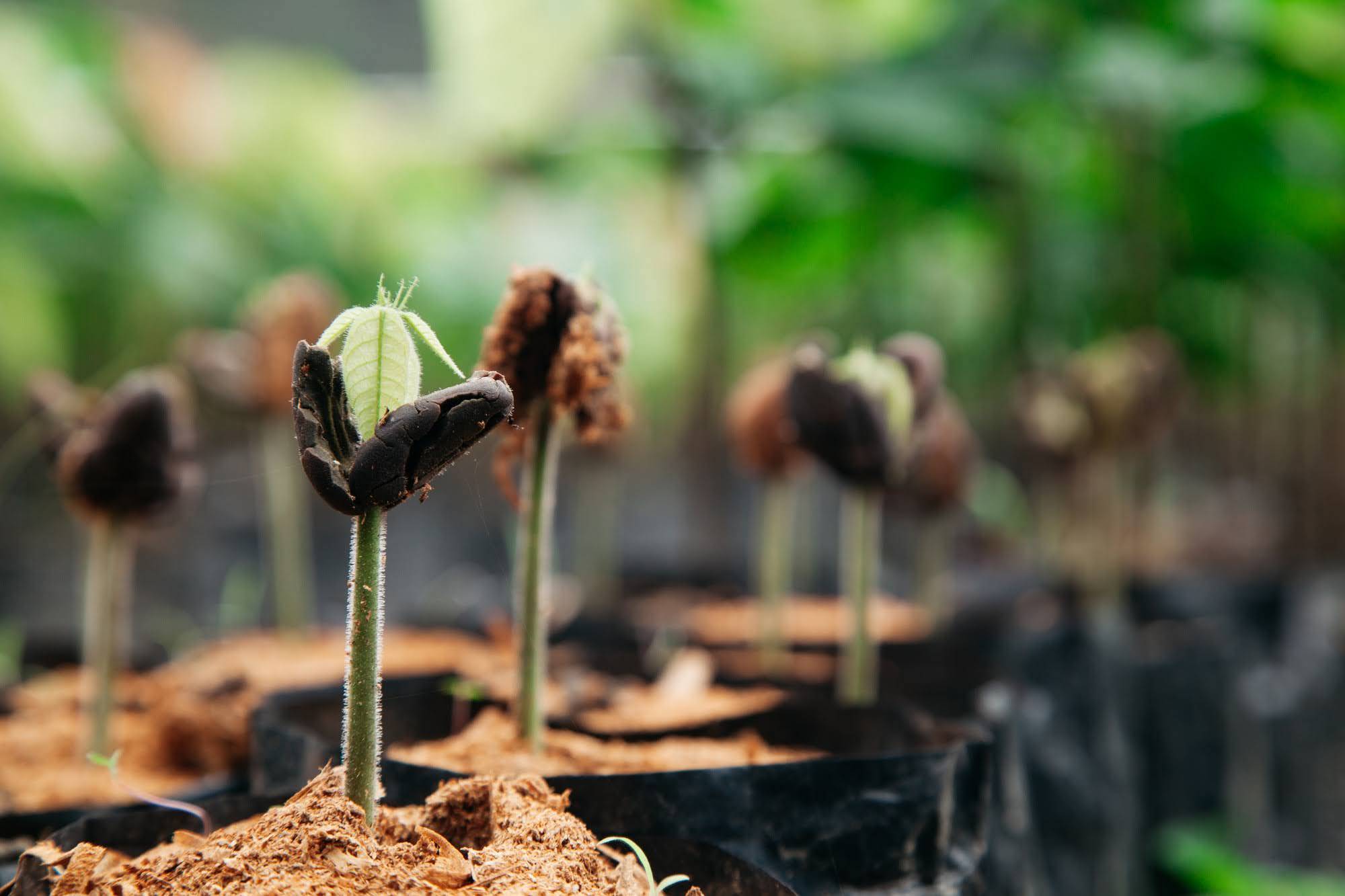- The partnership between MOCCA and CENTA is driving research efforts towards increasing productivity.
- Cacao producers can access more productive high quality clones, resilient to climate change.
Native, old, new and international highly valuable cocoas are being preserved in El Salvador, with funding from the U.S. Department of Agriculture (USDA) and the technical support from the MOCCA project, through a germplasm bank, which aims to be the source of quality genetic material for producers in this country.
Among the main achievements obtained from the support to this germplasm bank, is the release of a clone called CENTA JLCM that, after four years has reached a yield potential of 939. 47 (kilograms per hectare); in addition, the Fruit and Cocoa program introduced technologies for foliar nutrition, which have been used by COAGRO; as well as MOCCA´s fertilization and synchronized pruning for seeded and grafted plantations, all of which aim to increase production yields on cocoa farms.

“With the support of the MOCCA project, a nursery will be established with 50,000 registered plants and a clonal garden with CENTA-JLCM, CENTA-RA and CENTA-JSCM, to make evaluated national germplasm available to cocoa farmers”
Eufemia Segura | Investigator
CENTA, El Salvador
Eufemia Segura, a Program researcher, said that with the support of Lutheran World Relief, MOCCA´s cocoa program leader since 2020, the Center for Agricultural Technology (CENTA), carries research protocols on foliar fertilization, fertilization and synchronized pruning, with the aim of developing a technology applied to local conditions to increase production.
To date, the program has published these practices and conducted demonstrations for cocoa farmers, emphasizing on fertilization 15 days before pruning with triple 15 to the soil, and then applying foliar nutrition every 25 days with multi minerals, calcium, boron and zinc, essential in the production phase.
Segura added that she is working on the survival curves of cocoa pods, with national and international clones, in order to technically estimate the expected production in the harvest of the following period and its respective management, which will influence yield, and the susceptibility to diseases at the time they implement a strategy to improve production, whether by seed or grafted crops
“The diagnostics, the strengthening plan and the research lines identified with the support of MOCCA come to focus CENTA’s work, since user friendly technologies are being offered to farmers, Segura said. In 2022, we are presenting new research protocols to CENTA’s management, in line with MOCCA’s objectives, and in this way we also strengthen CENTA’s technical resources”
Eufemia Segura | Investigator
CENTA, El Salvador
Clone Catalog Available to Growers
MOCCA is also supporting the edition and printing of the cocoa clone catalog that CENTA produced as the final product for the rescue, selection and evaluation plan of local cocoa, thus facilitating access to quality planting material for renewal activities. The catalog gathers agronomic, productive, genetic and quality profile information of 9 clones selected in various growing areas.







